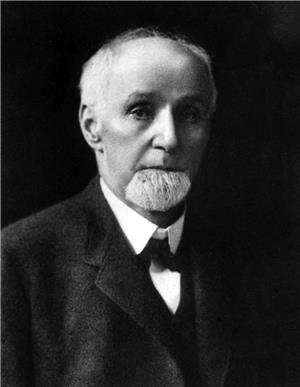On August 7, 1876, Dexter Horton (1825-1904) and 14 others adopt Articles of Incorporation establishing the Young Men's Christian Association (YMCA) of Seattle. In its statement of purpose, the group pledges "to promote the glory of God in the advancement of Evangelical religion, in the development of Christian character, in the improvement of the mind and in extending aid and sympathy to all within reach of its influence."
The group had been meeting for several weeks, initially in the home of Catherine Maynard, widow of Seattle pioneer David S. "Doc" Maynard (1808-1873), and later in a rented room above a spring bed factory on 2nd Avenue. In addition to Horton, who had established Seattle's first bank six years earlier, the founders included Rolland H. Denny, Thad Hanford, B.L. Northrup, George W. Ward, George F. Whitworth, and his son, Frederick H. Whitworth, among other prominent Seattleites. Horton, no longer "young" at age 51, was elected president.
One of the group's first challenges was to decide the terms of membership. Some favored limiting it to members of Evangelical churches, while others took a more liberal stance. They compromised by requiring that new members either belong to an Evangelical church or be admitted by the unanimous consent of the members present at any meeting. The annual membership fee was $3 a year.
Reporting on the organizational efforts, the Daily Pacific Tribune concluded that "The promise of the new society is very good" (July 29, 1876). One year later, the fledgling group told the national YMCA that it had 40 members, had spent $400 in the last year, had started a building fund, was holding weekly prayer meetings, and had a reading room but did not yet own any books.
Originally, the Seattle YMCA interpreted its mission in strictly religious terms, offering Bible study and prayer meetings to young men at a time when there were few churches to fulfill that function. The organization soon took on broader roles, promoting the unity of mind, body, and spirit, and widening its focus to include the boys who would become young men, and, eventually, the families from which they grew.

